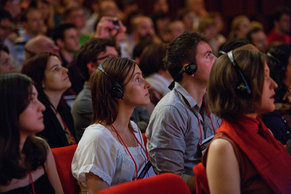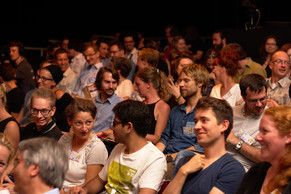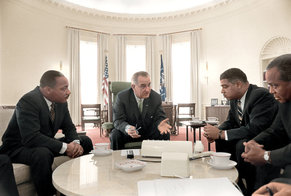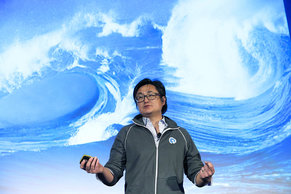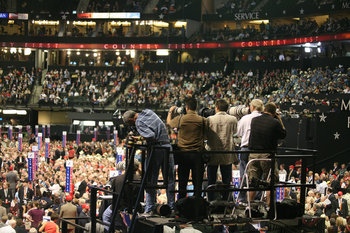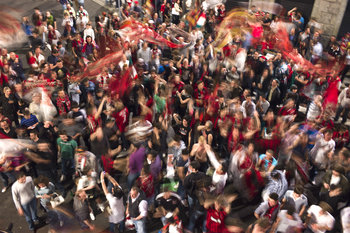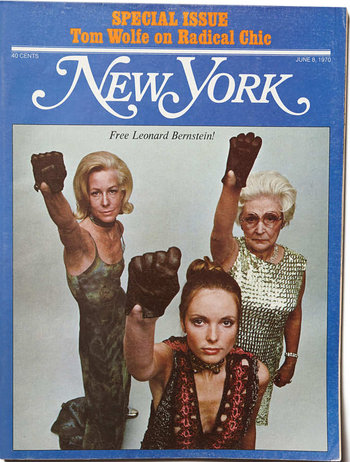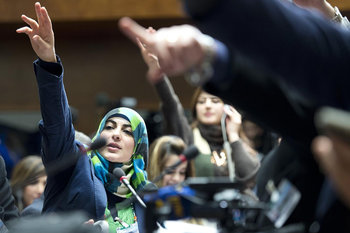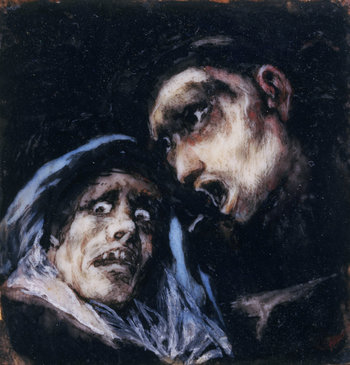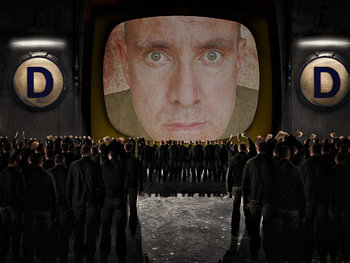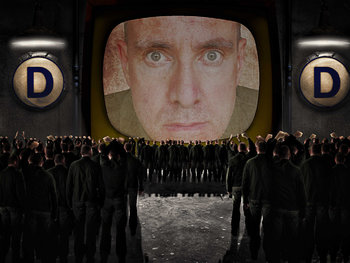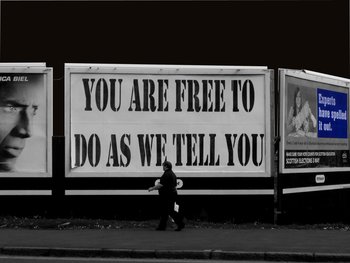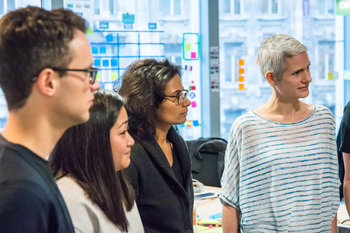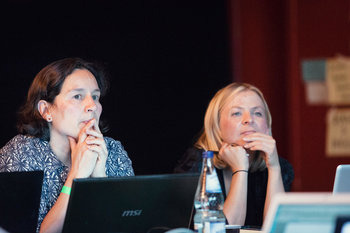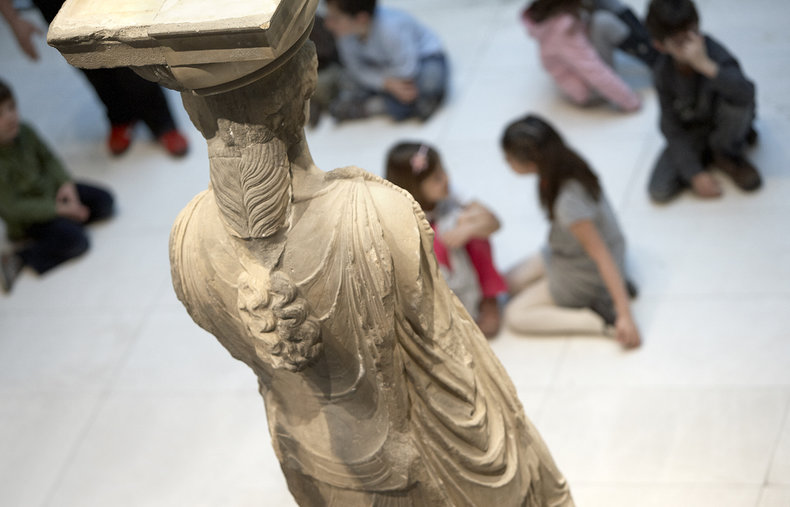
Personal Influence
The ability of a person to influence societies, organizations, cultures and groups.Authority figures | Celebrities |
Community leaders | Cultural capital |
Persuasion | Argument & debate |
Advocacy | Public speaking |
Relational capital | Social media influencers |
Expert authority | Charismatic authority |
Role models |
Social Influence
Social processes that influence the thinking and actions of groups.National culture | Corporate culture |
Global culture | Local culture |
Rumors | Groupthink |
Friends | Family |
Social environment | Social media |
Social norms | Social pressure |
Social proof | Social status |
Protests & demonstrations | Social movements |
Subculture | Traditions |
Word of mouth |
Cultural Influence
Artifacts of culture that influence the direction of nations, institutions, organizations and other groups.Language | Catchphrases |
Truisms | Thought-terminating cliches |
Heritage | Religion |
Ideology | Norms |
Myths | Stories |
Styles & aesthetics | Traditions |
Values | Lifestyles |
Worldview | Fiction |
Films | Memes |
Institutional Influence
The influence of institutions that represent durable social structures within a society.Political leaders | Governments |
Non-elected government officials | Policies, rules and other artifacts of authority |
Religions | Non-government organizations |
Corporations | Education systems |
Universities & colleges | Families |
Religion | Industry organizations |
Advocacy groups | Organized labor |
Charities |
Media Influence
The influence of media such as journalism, music and films.Advertising | Visual images |
Slogans | Propaganda |
Misinformation & Disinformation | Celebrities |
Movies | Fiction |
Documentaries | Non-fiction books |
Social media | News |
Music | Podcasts |
Vlogs | Blogs |
Television shows | Video games and immersive experiences |
Rational Influence
The influence of facts, data, knowledge and real world conditions.Data | Economic environment |
Events | Experiences |
Ideas | Concepts |
Science | Social sciences |
Humanities | Technology |
Theories | Knowledge |
Best practices | Standards |
Models |
Society
The systems, norms and shared meaning of a nation or civilization. Society refers to the systems that allow for peaceful coexistence in a place. As such, membership is defined by where you live. Society sets out a complete system for life that has a large impact on how people think.Culture
Culture are systems of norms and shared meaning that often have far more flexible membership than society. An individual may belong to multiple traditional cultures, subcultures and super cultures. For example, a sport such as soccer represents a super culture that spans many societies. As with society, culture is a strong form of influence as people may identify with a culture and be open to its ideas.Language
People commonly think using language. As such, learning a second language has a large influence on your ideas and viewpoint. The potent influence of language leads governments, organizations and groups to attempt to shape or control language as a means of influence. For example, propaganda may attempt to introduce new phrases or ban old ones.Word of Mouth
People are influenced by things they hear from other people. This can occur even if they have no social connection to the person. For example, being influenced by a speaker at a conference.Family & Friends
People with whom you form bonds are a primary influence.Community
People who you interact with in your daily life such as coworkers or neighbors.Social Status
People with much social status may have influence over others. For example, fame and authority amplifies an individual's influence.Social Proof
Social proof is the tendency to look for information from other people. For example, purchasing a mobile phone that appears to be popular because this feels safer than a less popular model.Thought-terminating Cliches
A thought-terminating cliche is a catchphrase, truism or slogan that people use as a mental shortcut. This may be used as an excuse not to think. For example, using a truism such as be yourself to avoid thinking about how you might improve, change or actually achieve a goal.Cultural Capital
Cultural capital is the ability to influence others in the context of a culture. For example, a brilliant engineer may have influence over other engineers but may have virtually no influence beyond engineering culture.Persuasion
Persuasion is the ability to influence others. Methods of persuasion are well developed with hundreds of widely known approaches and techniques. Persuasion is essentially a social skill that allows an individual to increase their influence over others.Knowledge
Documented or communicated knowledge. In many cases, an idea spreads because it is insightful and useful.Education
Education and learning are a means to spread knowledge and build skills including social skills. An education system, school, teacher or classmate can have a large influence on an individual.Experience
An experience or collection of experiences. For example, surfing may teach an individual about risk and reward.Profession
Individuals may be shaped by their profession. For example, an author may become more creative over the course of their career or an accountant may become more systematic and disciplined in their thinking with each decade that passes in the job.Storytelling
Storytelling such as books or myths commonly influence individuals, society and culture. For this reason, fiction can become reality.Media
Media offers information, knowledge, persuasion, entertainment, storytelling, interaction and sensation. This is a fundamental pathway of influence in an modern society.Advertising
Advertising is media that pays for access to an audience. This is designed to influence. For example, an ad may seek to influence a customer to buy. Alternatively, advertising may be designed to create brand recognition and positive feelings about a brand.Propaganda
Media that is designed to sell a political agenda. The term propaganda suggests aggressive approaches to influence that represent heavily biased sources of information.Art & Music
Art and music represent powerfully emotional and vivid experiences that have significant influence.Summary
The following are the common types of influence.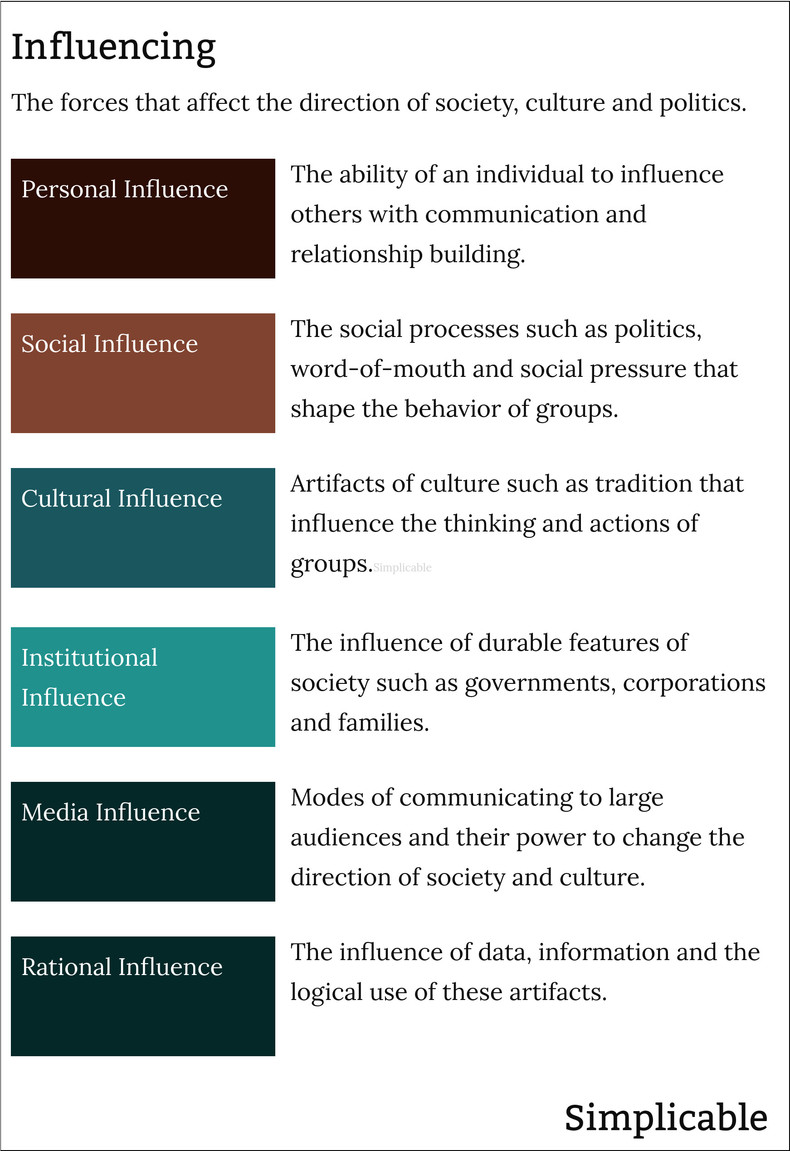
Personal Influence
Personal influence relates to the credibility, talents, relationships, position and status of an individual.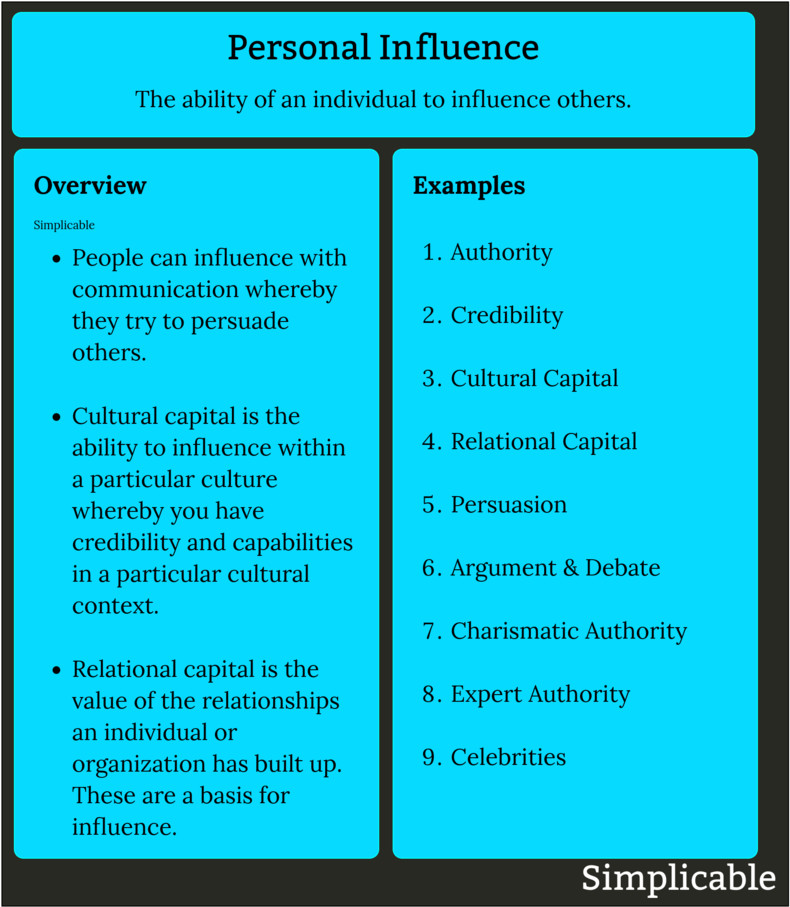
Social Influence
The influence of social processes such as social status and social pressure.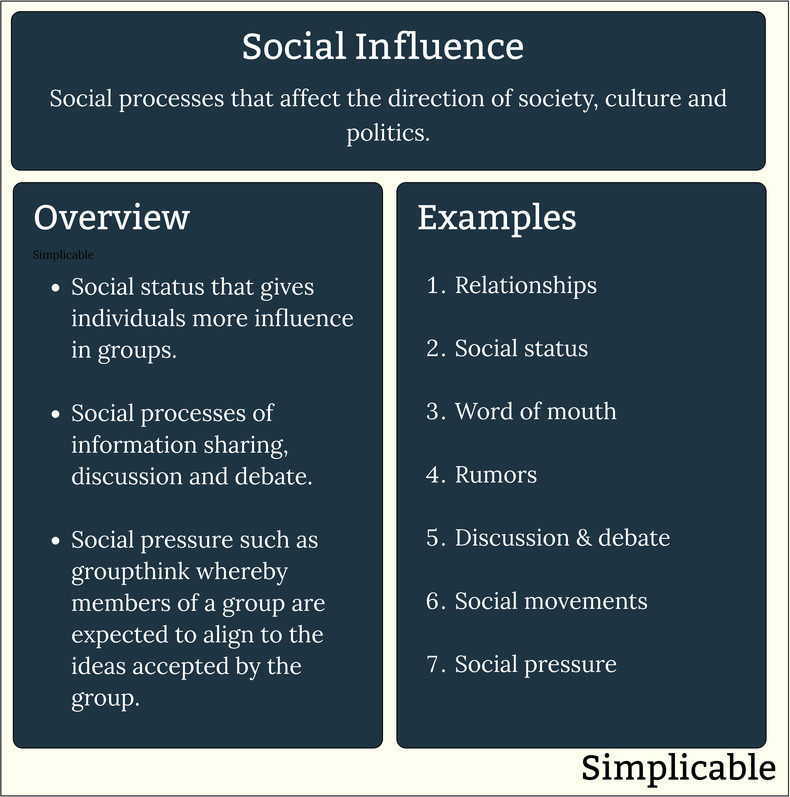
Cultural Influence
The influence of culture such as norms and traditions.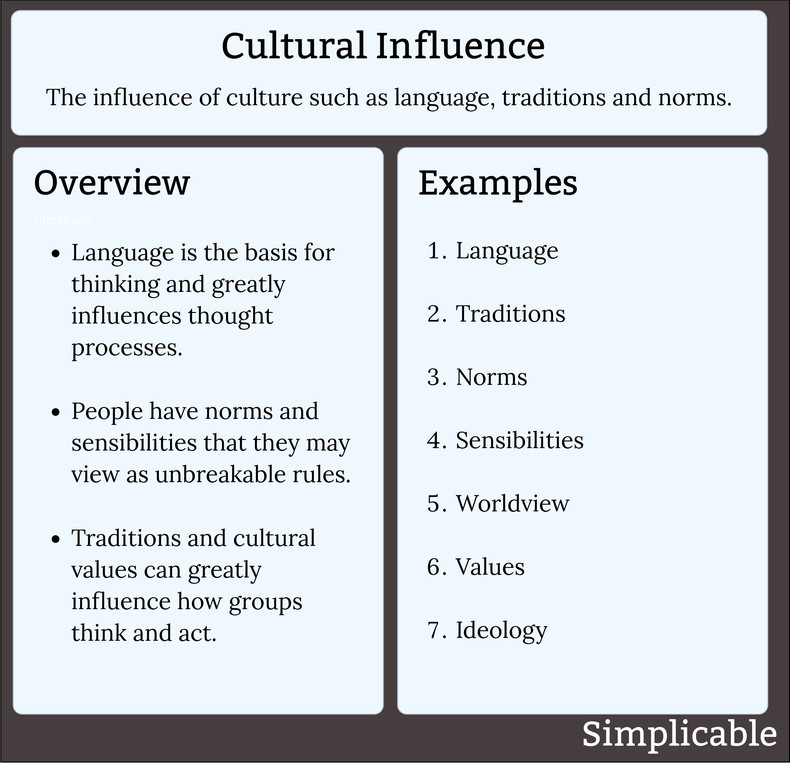
Institutional Influence
The influence of institutions such as governments, corporations and non-government organizations.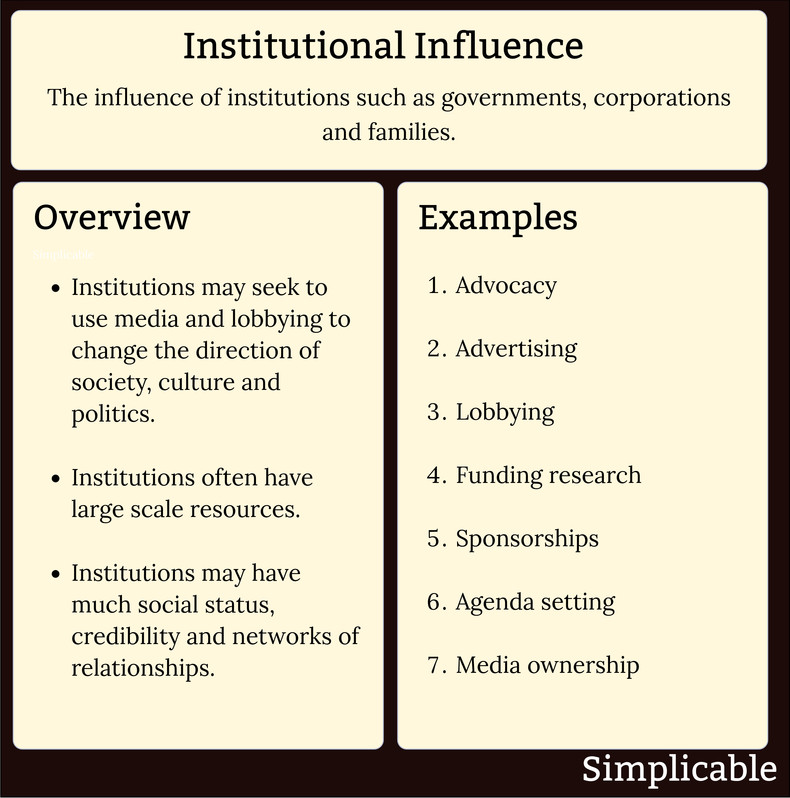
Media Influence
The influence of the media including the entertainment industry, news organizations and social media.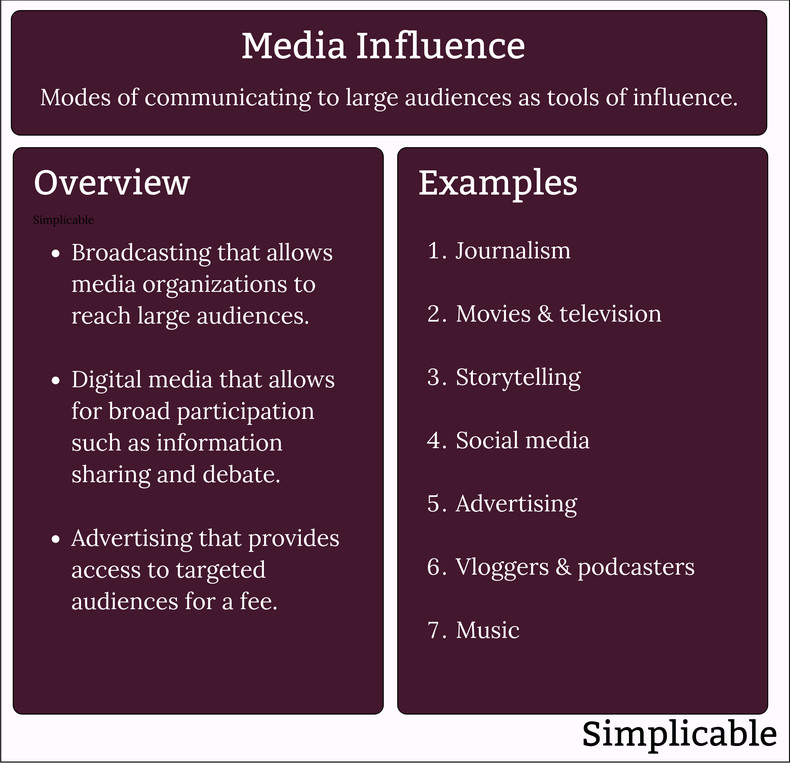
Rational Influence
The influence of facts, information, knowledge and research.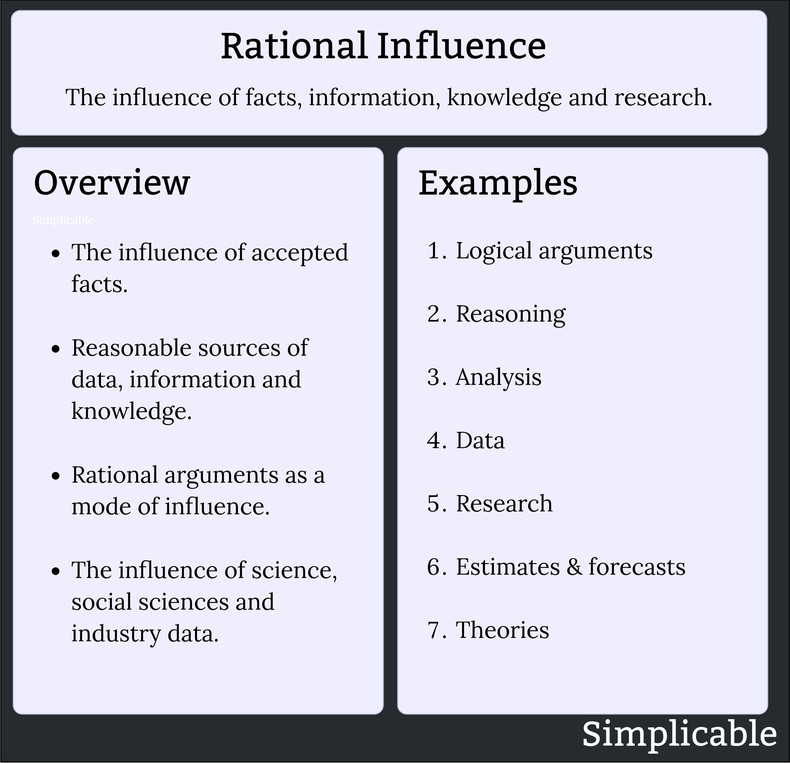
| Overview: Influence | ||
Type | ||
Definition (1) | The capacity to change the ideas, actions and character of an individual. | |
Definition (2) | The capacity to change the accepted ideas, norms, symbols and systems of a society, culture, organization or group. | |
Related Concepts | ||

